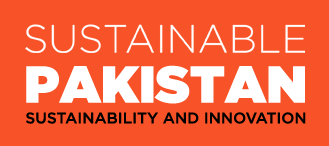
On 17 September 2020, leaders in textile, footwear and sustainability came together at the 1st International Sustainable Pakistan Conference, with the theme of Sustainability in the Fashion Industry.
Notable speakers such as Manfred Junkert (HDS/L), Dr. Gerhard Nickolaus (PFI Hong Kong) and Lutz Dietzold (German Design Council) discussed the opportunities and solutions Pakistan offers in terms of innovative and sustainable manufacturing.
The conference was organised by Sustainable Pakistan, an industry initiative supported by GIZ that recently won the German Design Award. The initiative’s mission is to create and realise innovation in the fashion industry and others while promoting Pakistan as excellent sourcing partner for sustainable products.
Romina Kochius, project leader of GIZ Labour Standard Programme in Pakistan, kicked off the event with an encouraging speech about the diverse opportunities present in Pakistan, calling Pakistan a “hidden gem”, and the benefits that sustainability brings to everyone, including the environment, businesses and consumers.
“Pakistan is an all-rounder. You can source anything here.” – Romina Kochius, GIZ
Pakistan is full of innovations.
Dr. Gerhard Nickolaus, from the testing and quality assurance service provider PFI Hong Kong, sees a big willingness in Pakistan’s manufacturers to innovate and invest that will help them meet increasing sustainability requirements and distinguish themselves as excellent sourcing market in the 21st century. The main advantages of Pakistan are its young population, existing infrastructure, open-mindedness and its strong local fashion market, proof that Pakistan can handle every step of the fashion supply chain. Abid Omar, director of business development at Syntech Fibers, market leader for innovative polypropylene fibers and yarns, further pointed out that Pakistani companies are already working on many innovations and offer great opportunities to diversify sourcing structures.
The speakers all agreed that Pakistan has a bright future ahead. As managing editor of the biggest journal on Pakistan’s textile industry, Nadeem Mazhar witnessed the industry’s positive trends in recent decades and, despite the current global crisis, even now, thanks to value-added products.
This development is welcomed by the brands and retailers of the German footwear and leather industry, who are looking for new materials and ideas that can meet high standards and create new possibilities, stated Manfred Junkert, General Manager of HDS/L (the Federal Association of the German Footwear and Leather Goods Industry), highlighting the enormous growth potential of Pakistan’s exports to Germany.
Communication is key.
While Pakistan is growing a cluster of sustainable and innovative footwear producers, their efforts often remain invisible to customers. Lutz Dietzold of the German Design Council encouraged innovative producers and brands to be more active in communicating their innovations to increase visibility and cooperation. Ralf Hellmann, vice president of MaxTex, agreed on the value of communication and extended it to consumers as well. Hellmann believes it is important to educate consumers on aspects such as materials, otherwise they will not be able to make informed purchasing decisions.
“Do good things and talk about them” – Guido Brackelsberg, DTB
Pakistan offers the solutions for the future.
Karl Borgschulze, managing director of CSI and initiator of Sustainable Pakistan, stressed that COVID accelerates the changes we were already seeing, and it is now time to act. The global community has complex tasks to solve in the coming years, such as climate change and global inequality. Meike Kern, who directs Heimtextil, sees that the young generation now is challenging everyone to do more to protect the environment. Pakistan offers the ground to create solutions for these tasks and challenges. Romina Kochius, who is involved in Sustainable Pakistan with GIZ, pointed out that sustainability is not just demanded by consumers, it is also smart business. As consumers increasingly value quality over price, it is smarter to move towards sustainable, value-added products. Guido Brackelsberg from the DTB added that vertical integration will become more important in the future.
Cooperation is necessary.
As Mali Stelzer (head of sustainability and CSR at NKD, a German value retailer,) put it, implementing sustainability is only possible in cooperation with supply chain partners and requires positive energy to continue to tackle challenges along the way. Hamed Lateef from TTI agreed with Stelzer and added that a clear focus and connection between buyers and producers is essential, as all actors in the entire supply chain need to work together to implement change. While there is still a gap to bridge, the speakers see a bright future for Pakistan.
“If all actors along the supply chain contribute just a little bit, we can make the world a better place.” – Max Gilgenmann, Kaleidoscope Berlin
To find out more, visit www.sustainable-pakistan.com
